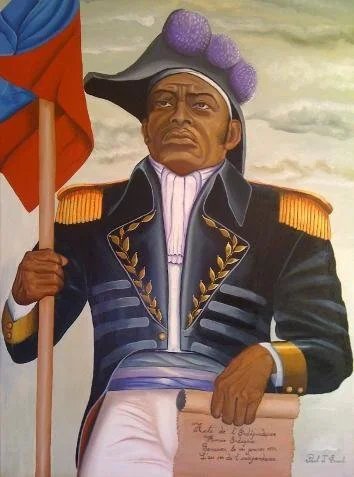Today In History:219 Years Ago, Dessalines, The First Head of State In the Americas To Be Assassinated
Jean-Jacques Dessalines, a leader of the Haitian Revolution and the first ruler of independent Haiti, was assassinated on October 17, 1806.
His assassination occurred 219 years ago today, marking him as the first head of state in the Americas to be assassinated.
Jean-Jacques Dessalines was assassinated just two years after leading Haiti to independence due to his increasingly autocratic rule, tactics, and unpopular agrarian and land policies which alienated his former allies.
The leaders of the conspiracy against him included two of his top generals, Alexandre Pétion and Henri Christophe, who feared his tyranny and vied for power.
Factors That Contributed To His Assassination:
Dictatorial rule. After becoming emperor in 1804, Dessalines's leadership grew authoritarian, which created deep distrust among his fellow military leaders. He centralized power, proclaimed himself emperor for life and demanded complete loyalty, clashing with rivals who expected a more democratic or collaborative form of governance.
Harsh agrarian policies. In an effort to relaunch Haiti's plantation economy, Dessalines implemented a system of labor that compelled former slaves to return to the fields for money but they couldn’t deny. This was seen by many as a form of renewed enslavement, and his brutal enforcement of these policies caused widespread discontent, especially among the rural population who wanted to henceforward live a simple peasant life after fighting a 14 years wars against the Spanish, English and the French for Haiti’s independence.
Land redistribution conflicts. Dessalines confiscated the land of French colonists, but instead of distributing it widely to the former slaves who had fought for independence, he largely transferred it to the state. This angered both the landless majority and the powerful mulatto elite (people of mixed-race descent), who had hoped to gain control of these properties themselves. A dispute over land in the south, a stronghold of the mulatto elite, was the final trigger for the rebellion that led to his death.
Massacre of remaining white colonists. Fearful of a French return, Dessalines ordered the killing of the remaining French planters in Haiti in early 1804. While intended to prevent a return to slavery, this brutal act alienated international observers and horrified many of his own generals, including Pétion who were of mixed races themseleves.

